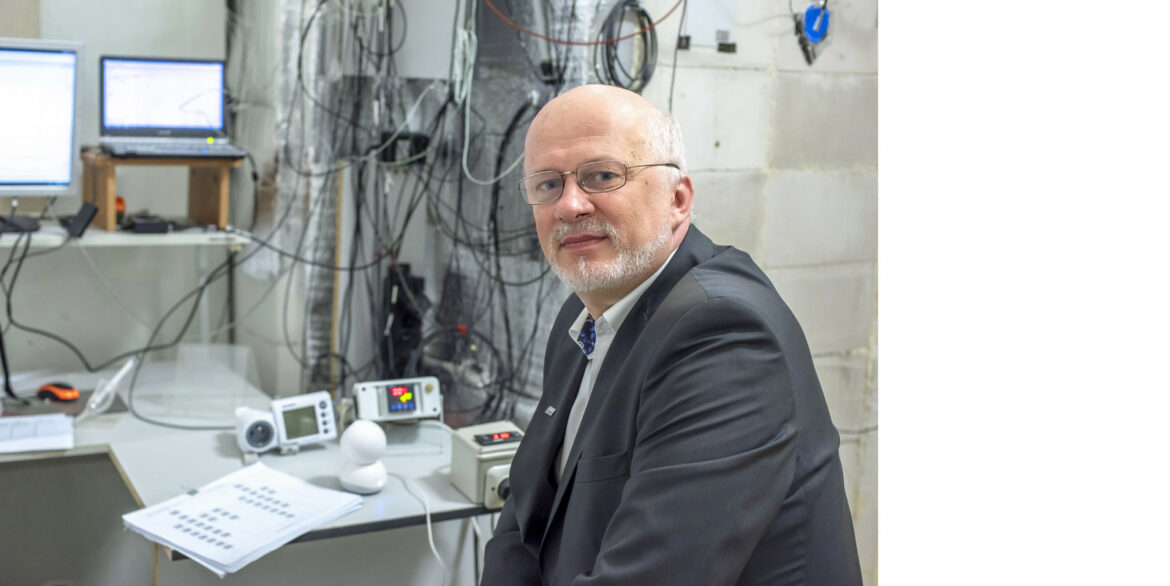A scientist from the Rzeszów University of Technology, Jerzy Szyszka, PhD has constructed an interactive solar-active thermal insulation wall with a heating function. The invention may have a wide range of applications in residential, public utility or industrial construction.
The innovative solution was developed in the Department of General Building at the Faculty of Construction, Environmental Engineering and Architecture. It comprises a sort of external wall which has selective thermal resistance, unlike walls made with traditional techniques that minimise heat exchange between the building and the external environment.
The wall reacts interactively to the external climatic conditions – in winter, it protects against heat loss, and in situations of sufficient solar radiation, it allows heat recovery through photothermal conversion. Depending on the thermal mass, the wall can also return the absorbed heat after sunset until the following day, reheating the adjoining room. Through the use of selective thermal resistance in summer, it has the ability to lower its own temperature at night.
“The wall’s energy efficiency was tested in a test chamber under field conditions and on a specially designed simulation bench. The tests carried out confirmed the theoretical assumptions of the solution. This resulted in two patents. I am now planning to develop the project enhancing the wall’s ability to cool in summer by intensifying the phenomenon of radiation heat exchange”, announces the author of the innovation.
The invention could find a wide range of applications in residential, public or industrial construction. At the recent INTARG fair, it was awarded a gold medal and the ‘Award of The First Institute Researchers and Inventors (I.R.I.)’. The project was realised thanks to a grant from the Podkarpackie Innovation Centre.
Arkadiusz Słomczyński





